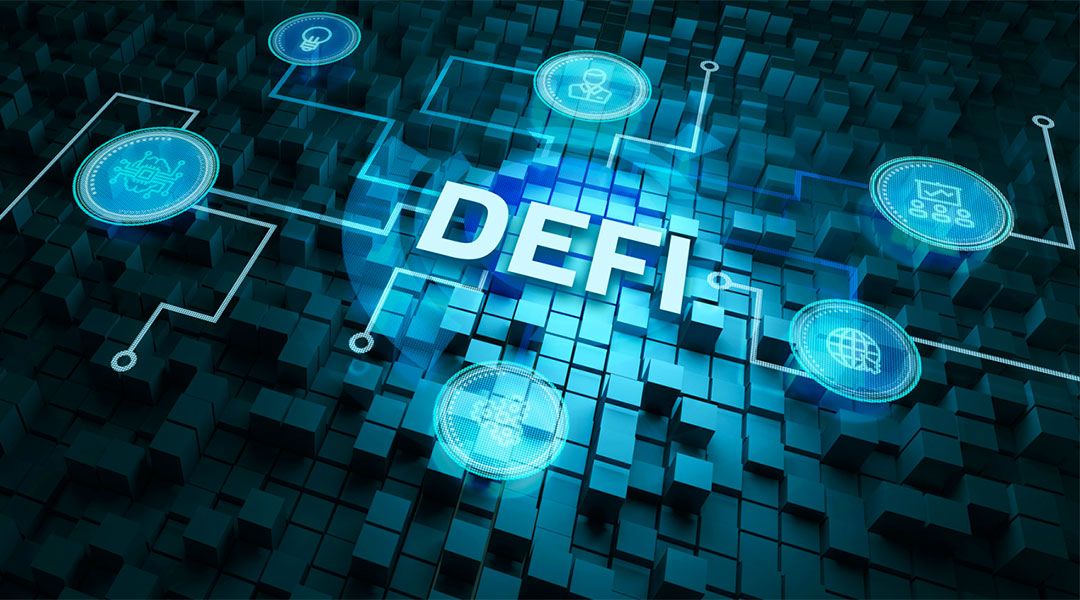Blockchain and Trust: The Advantages of a Decentralised System

Blockchain has the potential to revolutionise the way we leverage trust and even the way we think about trust. It is a fundamental good. While largely intangible, it is key to the functioning of practically every meaningful interaction in society.
We tend to think of trust concerning businesses, banking, relationships and finance since the necessity of trust in these areas is clear and undeniable. But it goes a lot further. In fact, without trust, no transaction can go forward. The very idea of even the simplest negotiations becomes implausible without it. Unfortunately, according to the World Economic Forum, trust towards governments, banks, media and institutions is rapidly eroding. Without trust, the law becomes tyranny and business become piracy.
Currently, trust is created across various domains with various means. We have our system of credit, various checks and balances, laws, and regulations, as well as whatever security measures we have in place. We start relationships with or extend credit to people and organisations whom we trust. To establish this, we rely on reputations, proven track records of trustworthiness, and other vague notions.
This allows us to do business with people whom we may not necessarily know. But there are still loopholes in our systems and flaws in security that enable bad actors to commit fraud, theft, perjury, and so on. We might have trust, but it can be easily broken.
In Math We Shall Trust
Therefore, we need to move towards a different approach to trust. Where it is created using mathematics. Blockchain is such a new approach. It removes the need for a trusted intermediary as the trust is created using encryption. So instead of trusting a third party, we trust mathematics.
Trust within a decentralised system is created through game-theoretical incentives and cryptography. As such, blockchain technology has the potential to change the nature of trust. Not only in digitally rendered transactions but also in everyday life.
Traditionally, trust and credit are relatively synonymous. Especially, within global supply chains trust is vital. Different companies, with distinctive objectives, are working together to achieve a common goal; to bring something from A to B. For a supply chain to work, partners have to trust each other.
To do so, there are multiple checks-and-balances, extensive documents and different checkpoints all interacting in a web of bureaucratic processes. The processes in place are time-consuming, expensive, and they don’t always prevent growing problems where trust is breached. Such as counterfeit products, fragmentation and falsification of data, lack of transparency, extensive settlement times and incorrect storage conditions.
Trust and Identity
All these checks and balances ensure resilience, but it also has a downside. Not only in supply chains but anywhere. After all, to trust one another, we have to give away some of our privacy. As such, trust is closely related to your identity. If I am to trust you, I want to know who you are. And if a lot is a stake, I want to know you better.
However, the need to know who you are disappears in a decentralised world as we can rely on Zero Knowledge Proof (ZKP). Zero Knowledge Proof (ZKP) is a method that uses cryptography to prove ownership of a specific piece of knowledge without revealing the content of that knowledge. With that, the user is in full control in which data he/she gives away in a transaction. Thanks to ZKP, whatever data is provided, the other stakeholder can be certain that the data is correct and has not been tampered with.
Three Examples of Trustless Transactions
A decentralised system ensures trust using mathematics. The benefits of trustless transactions over a centralised system with intermediaries are numerous. It is faster, more efficient, cheaper, it ensures the privacy of individuals and organisations and it can even result in increased sales.
There are plenty of examples where a decentralised system provides multiple benefits over a centralised system with trusted intermediaries. Let’s have a look at three examples of trustless transactions.
Financial Transactions
The most well-known example in the blockchain world is, of course, that of Bitcoin. Traditionally, when exchanging monetary value with each other, we use a known intermediary, a bank, to ensure trust between the different parties. Bitcoin enables peer-to-peer exchanges of value transaction among people who do not know each other. After all, you only need the wallet address to send someone money, not the person’s name. In addition, mathematics ensures that someone cannot spend the same crypto coin twice, bring trust to the system.
Transporting Perishable Goods
Apart from encryption, we can also use smart contracts, or Ricardian contracts, to ensure trust. Once terms are met, these contracts execute automatically. There is no dispute whether the other party has fulfilled its obligations as otherwise, the smart contract would not execute.
This comes in handy when transporting perishable goods. IoT sensors can measure the temperature. If during transport, the temperature is lower or higher than agreed upon, the price to be paid by the buyer is automatically adjusted. If the data is stored on a blockchain, it cannot be tampered with, ensuring trust in the system and preventing the buyer from malicious behaviour.
Selling Government Assets
A final example in government is that you can use a decentralised system related to either land title registry or the sale of public land. In The Netherlands, we have a system that works very well. It is a centralised system, but since we can trust the government, it works well. But in other, more developing, countries, it is not always possible to trust the government and corruption can easily happen. They can take away land from you or someone who does not own it can sell it. Therefore, countries are experimenting with using a decentralised system for this to make sure that corruption is no longer possible. Ukraine is a good example of this.
Ukraine, as well as other countries, is exploring the use of blockchain to curtail corruption, particularly when selling government assets. Besides the immutable nature of the public asset ledger, the other major advantage of such a blockchain-based system is that it eliminates the possibility of administrative interference during bidding and, therefore, provides trust. Next to providing trust, it also happens to reduce paperwork.
Final Thoughts
In the past decades, we created trust by collecting information about the other party. Without the right information, trust was not possible, enabling all kinds of malicious activities by governments, organisations or individuals. To prevent this, organisations started to collect a lot of data. Thanks to this centralised collection of vast amounts of (personal) data, it decimated our privacy.
Fortunately, in a decentralised world, this will no longer be the case. By relying on mathematics, we can create trustless and secure transactions while preserving our privacy. Thanks to Zero Knowledge Proof we can prove ownership over information without revealing our identity. Combined with decentralised reputation mechanisms, where the data is immutable, verifiable and traceable, we can build a system we can trust.
Image: Viktoria Kurpas/Shutterstock





